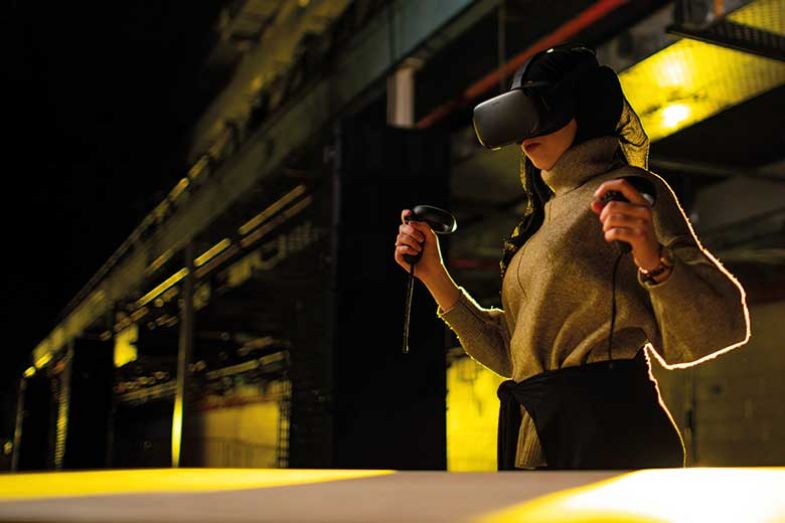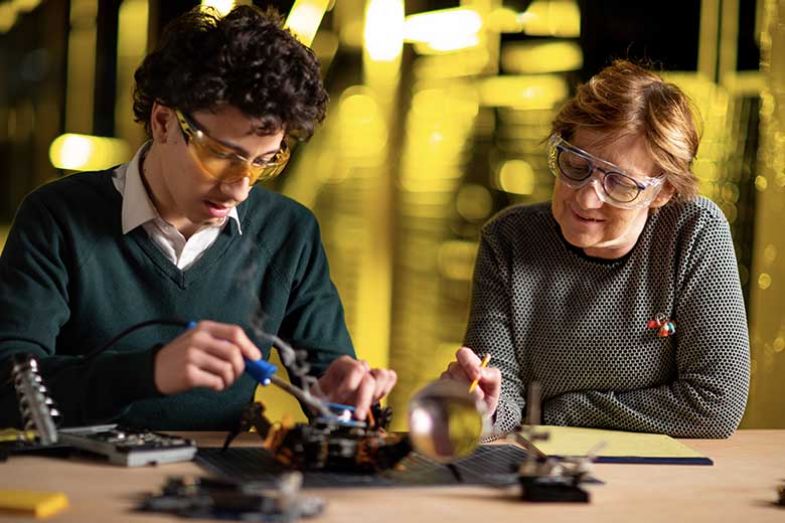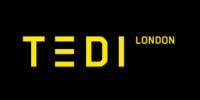
Source:
TEDI-London

TEDI-London is taking a unique approach to address the gaps in both skills and diversity
The talent shortage faced by the engineering sector has been well-documented, with statistics from the Higher Education Statistics Agency suggesting that the UK will not produce enough engineers to fill employment demands by 2022. In the wake of the pandemic, engineers will be needed more than ever to come up with innovative solutions to new challenges, and most institutions cannot keep up with demand.
TEDI-London, a specialist institution formed in partnership with King’s College London, University of New South Wales Sydney and Arizona State University, aims to broaden traditional approaches to attracting and educating the next generation of engineers.
“We need about 50,000 engineers a year in the UK,” explains Mike Sutcliffe, TEDI-London’s deputy dean. “We need critical thinkers, problem solvers: people who can work on solutions for the world’s biggest problems, who are socially conscious. We need people who can see the bigger picture and who are dynamic innovators.”
This philosophy is embedded into how the learning is structured at TEDI-London: outcomes will be met through project-based modules, set in discussion and partnership with industry. There will be an examination that brings together what students have learned throughout the academic year, combined with a reflective portfolio on their development as an engineer, getting our students into the mindset of being professionals in training.
This real-world application of knowledge will not only ensure that graduates are better prepared to get up to speed on real-life projects once they start in employment but also enable TEDI-London to broaden its appeal to a wider pool of potential talent.
“The focus for many universities up to now has been to recruit students from a traditional maths and physics background,” says Sutcliffe. “But we want to do things differently, recruiting a more diverse student profile using the three As, aptitude, attitude and ability, via an assessment centre.”
The assessment centre will look at students’ potential rather than particular A-level qualifications in physics and maths, while those from a creative background and mature students will be welcomed.

Like many universities, TEDI-London has already had to pivot to address the challenges presented by the coronavirus. This year’s summer school, meant to take place in London’s Canada Water for a group of 30 students coming together to develop a technical solution for a dementia-friendly society, ended up becoming a successful virtual experience for 147 students from 21 different countries. Fifty per cent of the students were from an engineering background, while the other 50 per cent came from non-engineering disciplines such as business.
Sutcliffe says: “The students came in concerned about interacting with people from other disciplines but came away confident. The way we will bring students together means those with a creative background can support those who don’t. Those with more life experience can share that and those who excel at maths can support those for whom that’s not a strong point. We all learn from each other as we would in the workplace, and our academics act as facilitators.”
“It’s diversity in the broadest sense,” says Steven Cousins, head of external engagement. “The whole shape and style of our programme is designed to have a greater appeal to employers. We build greater commercial awareness through an interdisciplinary approach – there’s a broader understanding of what engineering is and what it means through being hands on.”
TEDI-London is seeking a director of project-based learning, who may have a background in industry or academia but should have experience of liaising between the two – someone who can “speak the language” of industry and translate that into something TEDI-London can deliver to students which will prove valuable for their careers.
Industry organisations can partner with TEDI-London in a multitude of ways. They can contribute to curriculum workshops and there’s a strategic advisory group that meets regularly to discuss the direction of learning content. There are numerous hands-on routes, too – from being an “engineer in residence” to running masterclasses with students. Industry representatives will also play key roles in sitting on pitch panels for students at TEDI-London’s summer schools.
“We have the flexibility as a start-up institution to genuinely engage with employers as there are no pre-existing silos or structures we have to go through, nor is there any conflict with research obligations,” Cousins adds. The aim is to build a small number of highly synergistic partnerships that both fit with TEDI-London’s ethos and appeal to problems that employers are trying to solve.
In addition to a director of project-based learning, TEDI-London is hiring a number of other key roles, including an academic director, who will oversee teaching and learning delivery along with several other key responsibilities.
“The candidate could be working as a head of school or associate dean for teaching and learning,” explains Sutcliffe. “We want someone with experience of leading academic programmes, who has worked on accreditations with professional bodies, who can oversee assessment.”
In addition, the university is looking for senior teaching fellows across a variety of engineering disciplines. For each of these roles, the ideal candidate is “someone who can deal with ambiguity”, says Sutcliffe, “who can build their own support system rather than relying on the structures and processes set by their employer”.
Management is more informal and less hierarchical than in more traditional institutions, with people collaborating across all functions and disciplines.
With such an acute need for engineering talent, such close working and co-creation between universities and industry seems long overdue. For individuals that thrive in an environment where there may not be a blueprint to call upon but a chance to shape the future – this could be a golden opportunity.
To find out more, visit TEDI-London on THEunijobs.

